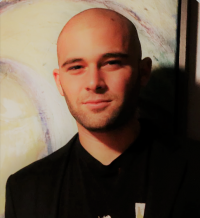After a Trauma
After the terrorist attacks in Brussels, Paris, or elsewhere, many people may find themselves struggling with symptoms of anxiety, stress and even posttraumatic stress disorder, or PTSD.
The news of the latest terrorist attacks may trigger anxious thoughts and feelings in those who have experienced or witnessed life-threatening events.



 My name is Zac Hersh, but I go by “Z.” I am a 23-year-old recent college graduate, certified personal trainer, yoga instructor, mindfulness and meditation coach, and an accomplished distance runner, and triathlete. I am also the co-creator of the Mood mobile app.
My name is Zac Hersh, but I go by “Z.” I am a 23-year-old recent college graduate, certified personal trainer, yoga instructor, mindfulness and meditation coach, and an accomplished distance runner, and triathlete. I am also the co-creator of the Mood mobile app.
 I have lived with anxiety since 2009. I was 22 years old. My first panic attack occurred that year. About 45 minutes into a car drive I felt as if I was going to die. I could not breathe and had to pull the car off the road and walk for hours to try and catch my breath. That was my introduction to anxiety and I had no idea that I was about to embark on a back and forth journey for years to come.
I have lived with anxiety since 2009. I was 22 years old. My first panic attack occurred that year. About 45 minutes into a car drive I felt as if I was going to die. I could not breathe and had to pull the car off the road and walk for hours to try and catch my breath. That was my introduction to anxiety and I had no idea that I was about to embark on a back and forth journey for years to come.
 Ever wonder what depression feels like? Here’s a hint: Take a pillowcase full of rocks and strap it to the top of your head. Now put on a dark pair of sunglasses — indoors. Leave those things on for about a week. Until you begin to see the world through a dark film that never gets lighter, and it takes a very conscious effort to hold your head up. That is what depression feels like on a good day.
Ever wonder what depression feels like? Here’s a hint: Take a pillowcase full of rocks and strap it to the top of your head. Now put on a dark pair of sunglasses — indoors. Leave those things on for about a week. Until you begin to see the world through a dark film that never gets lighter, and it takes a very conscious effort to hold your head up. That is what depression feels like on a good day.




